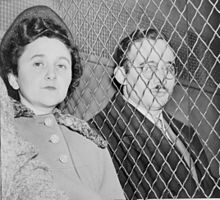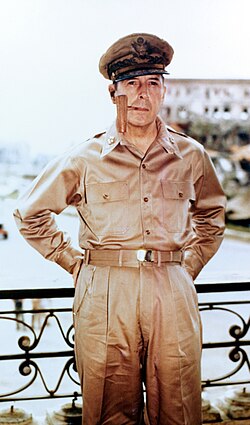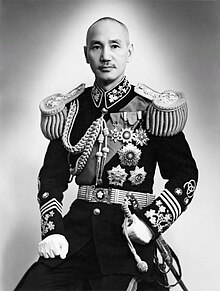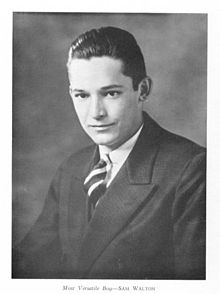April 5 is the 95th day of the year (96th in leap years) in the Gregorian calendar. There are 270 days remaining until the end of the year.
Holidays
- Christian feast day:
- Cold Food Festival, held on April 4 if it is a leap year (China); and its related observances:
History
In 823, Lothair I is crowned King of Italy by Pope Paschal I.
In 1081, Alexios I Komnenos is crowned Byzantine emperor at Constantinople, bringing the Komnenian dynasty to full power.
In 1242, During the Battle on the Ice of Lake Peipus, Russian forces, led by Alexander Nevsky, rebuff an invasion attempt by the Teutonic Knights.
In 1536, Royal Entry of Charles V into Rome: The last Roman triumph.
In 1566, Two-hundred Dutch noblemen, led by Hendrick van Brederode, force themselves into the presence of Margaret of Parma and present the Petition of Compromise, denouncing the Spanish Inquisition in the Netherlands. The Inquisition is suspended and a delegation is sent to Spain to petition Philip II.
In 1609, Daimyo (Lord) Shimazu Tadatsune of the Satsuma Domain in southern Kyūshū, Japan, completes his successful invasion of the Ryūkyū Kingdom in Okinawa.
In 1614, In Virginia, Native American Pocahontas marries English colonist John Rolfe.
In 1621, The Mayflower sets sail from Plymouth, Massachusetts on a return trip to England.
In 1710, The Statute of Anne receives the Royal Assent establishing the Copyright law of the United Kingdom.
In 1722, The Dutch explorer Jacob Roggeveen discovers Easter Island.
In 1764, the Sugar Act was passed in Britian. How sweet … NOT! It was also known as the American Revenue Act or the American Duties Act, was a revenue-raising act passed by the Parliament of Great Britain on April 5, 1764. The preamble to the act stated: “it is expedient that new provisions and regulations should be established for improving the revenue of this Kingdom … and … it is just and necessary that a revenue should be raised … for defraying the expenses of defending, protecting, and securing the same.” The earlier Molasses Act of 1733, which had imposed a tax of six pence per gallon of molasses, had never been effectively collected due to colonial evasion. By reducing the rate by half and increasing measures to enforce the tax, the British hoped that the tax would actually be collected. These incidents increased the colonists’ concerns about the intent of the British Parliament and helped the growing movement that became theAmerican Revolution.
In 1792, United States President George Washington exercises his authority to veto a bill, the first time this power is used in the United States.
In 1804, High Possil meteorite: The first recorded meteorite in Scotland falls in Possil.
In 1818, In the Battle of Maipú, Chile‘s independence movement, led by Bernardo O’Higgins and José de San Martín, win a decisive victory over Spain, leaving 2,000 Spaniards and 1,000 Chilean patriots dead.
In 1847, Birkenhead Park, the first civic public park in Britain, is opened in Birkenhead.
In 1862, American Civil War: The Battle of Yorktown begins.
In 1879, Chile declares war on Bolivia and Peru, starting the War of the Pacific.
In 1900, Archaeologists in Knossos, Crete, discover a large cache of clay tablets with hieroglyphic writing in a script they call Linear B.
In 1904, The first international rugby league match is played between England and an Other Nationalities team (Welsh & Scottish players) in Central Park, Wigan, England.
In 1922, The American Birth Control League, forerunner of Planned Parenthood, is incorporated.
In 1923, Firestone Tire and Rubber Company begins production of balloon-tires.
In 1932, Alcohol prohibition in Finland ends. Alcohol sales begin in Alko liquor stores.
In 1932, Dominion of Newfoundland: Ten thousand rioters seize the Colonial Building leading to the end of self-government.
In 1933, U.S. President Franklin D. Roosevelt signs two executive orders: 6101 to establish the Civilian Conservation Corps, and 6102 “forbidding the Hoarding of Gold Coin, Gold Bullion, and Gold Certificates” by U.S. citizens.
In 1936, Tupelo–Gainesville tornado outbreak: An F5 tornado kills 233 in Tupelo, Mississippi.

In 1942, World War II: The Imperial Japanese Navy launches a carrier-based air attack on Colombo, Ceylon during the Indian Ocean raid. Port and civilian facilities are damaged and the Royal Navy cruisers HMS Cornwall and HMS Dorsetshire are sunk southwest of the island.
In 1943, World War II: American bomber aircraft accidentally caused more than 900 civilian deaths, including 209 children, and 1,300 wounded among the civilian population of the Belgian town of Mortsel. Their target was the Erla factory one kilometer from the residential area hit.
In 1944, World War II: Two hundred seventy inhabitants of the Greek town of Kleisoura are executed by the Germans.
In 1945, Cold War: Yugoslav leader Josip Broz Tito signs an agreement with the Soviet Union to allow “temporary entry of Soviet troops into Yugoslav territory”.
In 1946, Soviet troops leave the island of Bornholm, Denmark after an 11-month occupation.
In 1949, Fireside Theater debuts on television.
In 1949, A fire in a hospital in Effingham, Illinois, kills 77 people and leads to nationwide fire code improvements in the United States.

In 1951, Ethel and Julius Rosenberg are sentenced to death for spying for the Soviet Union.
In 1956, Fidel Castro declares himself at war with Cuban President Fulgencio Batista.
In 1956, In Sri Lanka, the Mahajana Eksath Peramuna win the general elections in a landslide and S. W. R. D. Bandaranaike is sworn in as the Prime Minister of Ceylon.
In 1957, In India, Communists win the first elections in united Kerala and E. M. S. Namboodiripad is sworn in as the first Chief Minister.
In 1958, Ripple Rock, an underwater threat to navigation in the Seymour Narrows in Canada is destroyed in one of the largest non-nuclear controlled explosions of the time.
In 1964, Douglas MacArthur, American general (b. 1880) dies of biliary cirrhosis. President Kennedy had authorized a state funeral before his own death in 1963, and Johnson confirmed the directive, ordering that MacArthur be buried “with all the honor a grateful nation can bestow on a departed hero.”
He was an American five-star general and Field Marshal of the Philippine Army. He was Chief of Staff of the United States Army during the 1930s and played a prominent role in the Pacific theater during World War II. He received the Medal of Honor for his service in the Philippines Campaign, which made him and his father Arthur MacArthur, Jr., the first father and son to be awarded the medal. He was one of only five men ever to rise to the rank of General of the Army in the US Army, and the only man ever to become a field marshal in the Philippine Army.
Raised in a military family in the American Old West, MacArthur was valedictorian at the West Texas Military Academy, and First Captain at the United States Military Academy at West Point, where he graduated top of the class of 1903. During the 1914 United States occupation of Veracruz, he conducted a reconnaissance mission, for which he was nominated for the Medal of Honor. In 1917, he was promoted from major to colonel and became chief of staff of the 42nd (Rainbow) Division. In the fighting on the Western Front during World War I, he rose to the rank of brigadier general, was again nominated for a Medal of Honor, and was awarded the Distinguished Service Cross twice and the Silver Star seven times.
In 1964, first driver-less trains run on the London Underground.
In 1966, Timothy Leary spoke at New York’s Town Hall and compared LSD to a microscope saying that “the drug is to psychology what the microscope is to biology”, making not just a few to wonder, “What’s he smokin’?”
In 1969, Vietnam War: Massive antiwar demonstrations occur in many U.S. cities.
In 1971, In Sri Lanka, Janatha Vimukthi Peramuna launches a revolt against the United Front government of Sirimavo Bandaranaike.
In 1975, Chiang Kai-shek, Chinese general and politician, 1st President of the Republic of China (b. 1887) dies from renal failure aggravated with advanced cardiac malfunction. He was a Chinese political and military leader who served as the leader of the Republic of China between 1928 and 1975. He is known as Chiang Chung-cheng or Chiang Chieh-shih in Standard Chinese. Chiang was an influential member of the Kuomintang (KMT), the Chinese Nationalist Party, and was a close ally of Sun Yat-sen. He became the Commandant of the Kuomintang’s Whampoa Military Academy and took Sun’s place as leader of the KMT when Sun died in 1925. In 1926, Chiang led the Northern Expedition to unify the country, becoming China’s nominal leader. He served as Chairman of the National Military Council of the Nationalist government of the Republic of China (ROC) from 1928 to 1948. Chiang led China in the Second Sino-Japanese War (the Chinese theater of World War II), consolidating power from the party’s former regional warlords. Unlike Sun Yat-sen, Chiang Kai-shek was socially conservative, promoting traditional Chinese culture in the New Life Movement and rejecting western democracy and the nationalist democratic socialism that Sun embraced in favour of an authoritarian government.
In 1976, In the People’s Republic of China, the April Fifth Movement leads to the Tiananmen Incident.
In 1986, Three people are killed in the bombing of the La Belle discotheque in West Berlin, Germany.
In 1991, An ASA EMB 120 crashes in Brunswick, Georgia, killing all 23 aboard including Sen. John Tower and Astronaut Sonny Carter.
In 1992, Sam Walton, American businessman, founded Walmart and Sam’s Club (b. 1918) dies. Sam Walton was born to Thomas Gibson Walton and Nancy Lee, in Kingfisher, Oklahoma. He lived there with his parents on their farm until 1923. However, farming did not provide enough money to raise a family, and Thomas Walton went into farm mortgaging. He worked for his brother’s Walton Mortgage Company, which was an agent for Metropolitan Life Insurance where he repossessed farms during the Great Depression. He and his family (now with another son, James, born in 1921) moved from Oklahoma to Orlando, Florida. There they moved from one small town to another for several years. While attending eighth grade in Shelbina, Missouri, Sam became the youngest Eagle Scout in the state’s history. In adult life, Walton became a recipient of the Distinguished Eagle Scout Award from the Boy Scouts of America.
In 1992, Alberto Fujimori, president of Peru, dissolves the Peruvian congress by military force.
In 1992, The Siege of Sarajevo begins when Serb paramilitaries murder peace protesters Suada Dilberović and Olga Sučić on the Vrbanja Bridge.
In 1994, American musician Kurt Cobain commits suicide.
In 1998, In Japan, the Akashi Kaikyō Bridge linking Awaji Island with Honshū and costing about $3.8 billion USD, opens to traffic, becoming the largest suspension bridge in the world.
In 1999, Two Libyans suspected of bringing down Pan Am Flight 103 in 1988 are handed over for eventual trial in the Netherlands.
In 2000, Lee Petty, American race car driver (b. 1914) dies. He was an American stock car driver in the 1950s and 1960s. He was one of the pioneers of NASCAR, and one of its first superstars. He died at the age of 86, several weeks after undergoing surgery for an abdominal aortic aneurysm-a tear in the aorta vessel near the stomach that grows until cardiac arrest. Despite the surgery the condition deteriorated and he died of abdominal aortic dissection. He was buried at the Level Cross United Methodist Church Cemetery in Randleman, North Carolina. Lee died just three days after his great-grandson Adam made his Winston Cup Series debut.
He is the father of Richard Petty, who would become NASCAR’s all-time race winner. With sons Richard and Maurice Petty, he founded Petty Enterprises, which became NASCAR’s most successful racing team. He was the grandfather of Kyle Petty, and great grandfather of Adam Petty who died in a racing accident during a NASCAR Busch Series practice session at New Hampshire International Speedway. He is also the grandfather of Ritchie Petty who ran a few races in NASCAR. His nephew Dale Inman worked for Petty Enterprises as Richard’s crew chief from the early 1960s until 1981 and during the 1990s.
In 2006, Gene Pitney, American singer-songwriter (b. 1941) dies of a heart attack and had severely constricted coronary arteries. He was survived by his wife Lynne and their three sons Todd, Chris, and David. He was buried at Somers Center Cemetery in Somers, Connecticut. He was an American singer-songwriter, musician, and sound engineer. Through the mid-1960s, he enjoyed success as a recording artist on both sides of the Atlantic and was among the group of early 1960s American acts who continued to enjoy hits after the British Invasion.
Pitney charted 16 Top-40 hits in the U.S., four in the Top 10. In the UK he had 22 Top-40 hits, and 11 singles in the Top Ten. He also wrote the early 1960s hits “Rubber Ball” recorded by Bobby Vee, “He’s a Rebel” by the Crystals, and “Hello Mary Lou” by Ricky Nelson. In 2002, he was inducted into the Rock and Roll Hall of Fame.

In 2008, Charlton Heston, who won the 1959 best actor Oscar as the chariot-racing “Ben-Hur” and portrayed Moses, Michelangelo, El Cid and other heroic figures in movie epics of the ’50s and ’60s, died. He was 84. The actor died on a Saturday night at his home in Beverly Hills with his wife Lydia at his side, family spokesman Bill Powers said. Powers declined to comment on the cause of death or provide further details.
“Charlton Heston was seen by the world as larger than life. He was known for his chiseled jaw, broad shoulders and resonating voice, and, of course, for the roles he played,” Heston’s family said in a statement. “No one could ask for a fuller life than his. No man could have given more to his family, to his profession, and to his country.”
In 2009, North Korea launches its controversial Kwangmyŏngsŏng-2 rocket. The satellite passed over mainland Japan, which prompted an immediate reaction from the United Nations Security Council, as well as participating states of Six-party talks.
In 2010, Twenty-nine coal miners are killed in an explosion at the Upper Big Branch Mine in West Virginia.
In 2018, Agents with the U.S. Immigration and Customs Enforcement raid a slaughterhouse in Tennessee, detaining nearly 100 undocumented Hispanic workers in one of the largest workplace raids in the history of the United States.
In 2021, Nguyễn Xuân Phúc took office as President of Vietnam after dismissing the title of Prime Minister.





